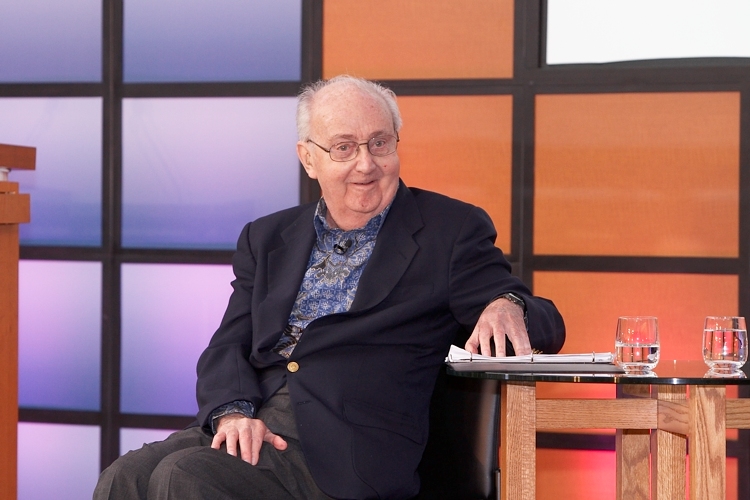
Today I mourn the passing of George Box, truly a giant among 20th century statisticians. Indeed, I should not relegate him to the 20th century because he won the Brumbaugh Award in 2010 and 2007 for writing papers that made in their year of publication the largest single contribution to the development of industrial application of quality control.
Professor Box was 93. The last time I saw him was at the JMP Discovery Summit conference in 2009 where I introduced him to give a speech. George got a standing ovation from a crowd of several hundred fans of design of experiments and particularly his work. I will never forget his remarks as the applause died slowly away.
He said, "I feel like the son of the sultan on his 21st birthday when presented with 21 virgins. I know what to do. I just don't know where to start!"
Professor Box was the father of response surface methodology, which arose following his groundbreaking 1951 paper with K.B. Wilson. He also popularized the regular two-level fractional factorial designs, writing two great papers with Stu Hunter in 1961.
His greatest contribution to my life was the wonderful book, Statistics for Experimenters, which he wrote with William G. Hunter and Stu Hunter and published in 1978, the same year he served as president of the American Statistical Association. I remember the excitement I felt on reading the description of how the attainment of knowledge is an endless spiral proceeding alternately from deduction to induction and back. Even now, I recall with pleasure the discussion of the randomization distribution early in the book. Of course, the chapters on the two-level fractional factorial designs gave me the tools that resulted in my first big successes as an industrial statistician.
Because of my passion for design of experiments, I tend to focus there. But I tip my hat to his contributions in Bayesian analysis (Box and Tiao 1973), time series (Box and Jenkins 1970) and control (Box and Luceño 1997).
Before I introduced him at the conference in 2009, I asked him what his favorite honors were. He mentioned that he had become a Fellow of the Royal Society. He made sure I knew that was different (and much better) than being a Fellow of the Royal Statistical Society, where he was made an honorary Fellow in 2004. He said that to become a Fellow of the Royal Society was more prestigious than being knighted.
I first met him at a Gordon Research conference in the late 1980s. As a young statistician, I am afraid that I was a bit too overawed to take full advantage of that opportunity for knowing him on a personal level. But listening to his insights in the discussion after each talk at the conference was, by itself, worth the week spent sleeping in the terrible beds at a boys' school in New Hampshire.
Yes, the world of statistics has lost a great one. I will miss him. Requiescat in pace, my friend.
Box and Wilson K. B. (1951) "On the experimental attainment of optimum conditions." J. Roy. Statist. Soc. Ser. B Metho. 13:1-45.
Box, G. E. P. and Hunter, J. S. (1961) "The 2k-p Fractional Factorial Designs Part I" Technometrics Vol 3, No. 3 311-351.
Box, G. E. P. and Hunter, J. S. (1961) "The 2k-p Fractional Factorial Designs Part II" Technometrics Vol. 3, No. 4, pp. 449-458.
Box, G. E. P. and Jenkins, G. (1970) Times series analysis. Forecasting and control. Wiley, New York.
Box, G. E. P. and Tiao, G. (1973) Bayesian inference in statistical analysis Wiley, New York.
Box, G. E. P., Hunter, W.G., Hunter, J. S., (1978) Statistics for Experimenters, In Introduction to Design Data Analysis and Model Building. Wiley, New York
Box, G. E. P. and Luceño, A. (1997) Statistical control by monitoring and feedback adjustment Wiley, New York, 328 pp.